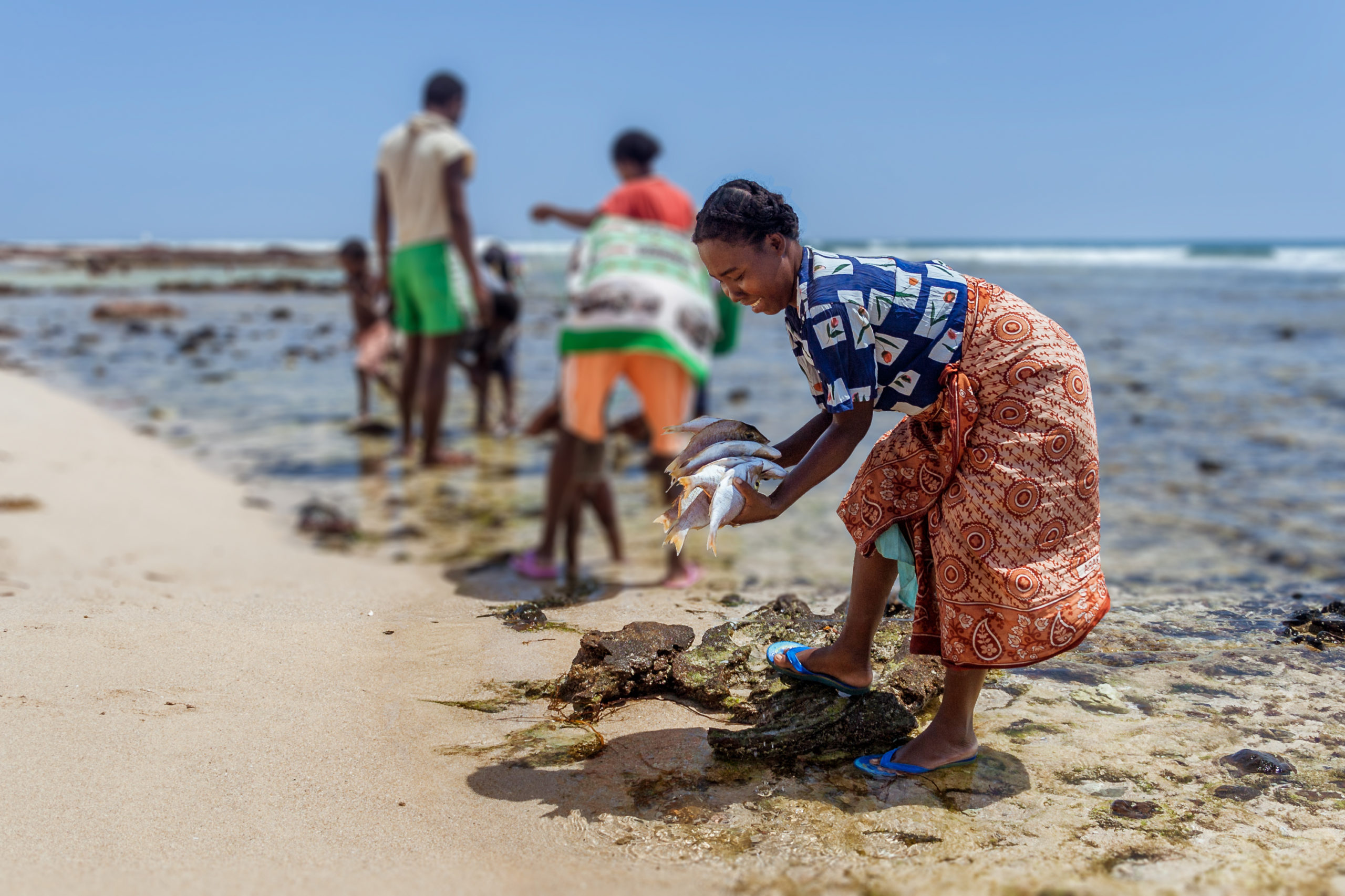This year, the 66th UN Commission on the Status of Women will be held from March 14-25. The theme is “Achieving Gender Equality and the Empowerment of all Women and Girls in the Context of Climate Change, Environmental, and Disaster Risk Reduction Policies and Programs.” Data2X connected with Dr. Vik Mohan, director of community health at Blue Ventures to understand how gender data and sexual and reproductive health and rights can intersect to build community resilience to climate change and other crises.
How is family planning linked to fostering gender equality and building resilience to climate change?
Climate-related shocks and stressors can impact women’s ability to access family planning services, thereby violating their reproductive rights. Similarly, a lack of access to family planning services—and poor health, as a result—can increase the vulnerability of women and their communities to climate-related shocks and stressors.
Are there any successful examples that stand out from Blue Ventures’ work?
When it comes to climate, I can certainly think of an example of improved access to family planning services that enabled a community to respond to a climate-related shock. About nine years ago, Cyclone Haruna made landfall in southwest Madagascar. There was a significant loss of life and damage to infrastructure. Fishers couldn’t go out fishing for weeks as a result of strong winds.
In the immediate aftermath of the storm, it was the community health workers who were the main responders. These workers were initially there to provide family planning services, but because they were trusted members of their community who had formed strong relationships with other community members, they were also able to provide other health information and services. For example, they could provide education about how to protect against diarrhea and other negative health impacts as a result of the cyclone. They could also gather information from their communities about who was most in need and allocate resources accordingly. Overall, they worked closely with other community organizers to quickly coordinate a community-level response.

Blue Ventures focuses on community-driven approaches that are grounded in evidence. How does Blue Ventures use gender data and where have you seen the biggest gaps in the data needed to understand the gendered impacts of climate change, environmental degradation, and loss of biodiversity?
We use gender data to help understand how men and women engage with and perceive natural resource management and health services. For example, we use data to understand whether they engage with various livelihoods, such as fishing, and see if their use of family planning affects this. Data that is disaggregated by gender helps us understand important gender differences in the way communities relate to us.
Unfortunately, we don’t have a lot of data to help us understand how climate change is affecting communities. That data would be really valuable to us. Madagascar, for example, is in the midst of a particularly brutal cyclone season, and there is a drought in southern Madagascar that’s being described as a climate emergency. It would be helpful to understand the gendered impacts of these sorts of stressors and crises upon the communities we serve, but we don’t currently have that kind of data. We’d really like to know whether it is indeed women who are shouldering the greatest impacts, whether it is women who are suffering the most as a result of these weather events.
What do you see as a promising solution to such challenges and how can women, girls and other marginalized communities play a role in filling these gaps?
As a starting point, it would be incredibly valuable if women and girls could share their stories, perhaps through existing organized groups. So, for example, on the west coast of Madagascar where Blue Ventures works, there are lots of women’s groups who are active in the realms of health, natural resource management and disaster risk management. It would be wonderful if those fora could be an organizing force where women’s voices and lived experiences are shared and elevated, so that the data from those stories is captured and listened to. That rich, causative, narrative-based data would be a fantastic starting point for understanding the gendered differences and impacts of climate shocks and stresses. This qualitative data is also critical to inform the sorts of quantitative data that needs to be collected.
Overall, I want to reiterate the value of listening to people’s lived experience. Before we can dive in with specific metrics that we think will measure something of importance, let’s start by listening to the people who have been directly affected by cyclones, drought, famine, or other crises.
Once the data are collected, a major challenge is connecting that data to policy. Are there examples of bridging the data-policy divide in Blue Ventures’ work that have led to successful gender-responsive climate and environment policies?
We are at the beginning of our journey with using data to influence policy. We’re in the process of gathering data on fisheries to inform national policy—to advocate for basic transparency in the way fisheries are managed in Madagascar, for example. These are exciting first steps for us on this journey to bridge the data-policy divide.
